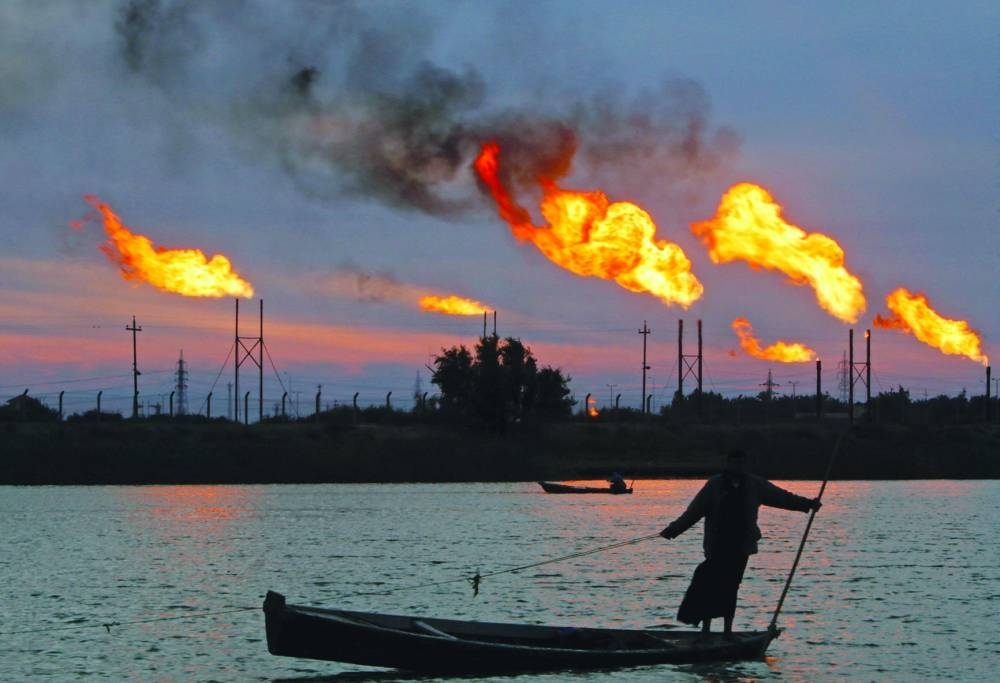Bloomberg
London
Opec’s oil production fell last month as Iraq’s exports were reduced by a pipeline suspension while a labour strike cut shipments from Nigeria.
Output from the Organisation of Petroleum Exporting Countries declined by 310,000 barrels a day to an average of 28.8mn, the lowest level in almost a year, according to a Bloomberg survey.
Opec and its allies have announced new production cutbacks starting this month to shore up global oil markets, but the biggest supply changes in April were unintentional.
Iraq accounted for about 80% of the drop.
A political spat between the central government in Baghdad and the semi-autonomous Kurdistan region has led to the halt of a pipeline that normally carries 500,000 barrels a day to international markets via Turkiye.
In Nigeria, a production recovery seen in the run-up to presidential elections has fizzled, with industrial action forcing Exxon Mobil Corp to renege on shipments from several terminals last month.
Still, the supply losses by Opec and its allies — both deliberate and accidental — are barely propping up an oil market that’s being roiled by fears over economic growth in China and the wider world.
Crude futures briefly sank below $72 a barrel in New York on Tuesday to the lowest since March.
While group leader Saudi Arabia drew another rebuke from the White House when the latest curbs were unveiled on April 2, the move is looking increasingly prescient as oil prices sag.
Production from the full 23-nation Opec+ alliance should decline by another 1.2mn barrels a day this month as those new curbs take effect. Russia, another member of the Opec+ coalition, also announced cutbacks in response to sanctions over its invasion of Ukraine, but the implementation so far remains unclear.
In terms of supplies in April, the largest adjustments were involuntary.
Iraq’s output slumped by 250,000 barrels a day to 4.13mn — the lowest since late 2021 — after Turkiye suspended the northern pipeline following a ruling by an international business tribunal. While Baghdad and Kurdish authorities have struck a temporary deal to get oil flowing again, “technical matters” are delaying the restart.
Nigeria retreated by 120,000 barrels a day to 1.32mn, the survey showed, reversing a surge seen earlier this year when the country reached an accord with a former warlord in the oil-rich Niger Delta region.
Workers at Exxon Mobil facilities in the country returned to work last week, allowing production and exports to resume after a two-week industrial action.
Bloomberg’s survey is based on ship-tracking data, information from officials and estimates from consultants including Kpler Ltd, Rapidan Energy Group and Rystad Energy.
Opec+ is due to meet on June 4 to review production levels for the second half of the year.



